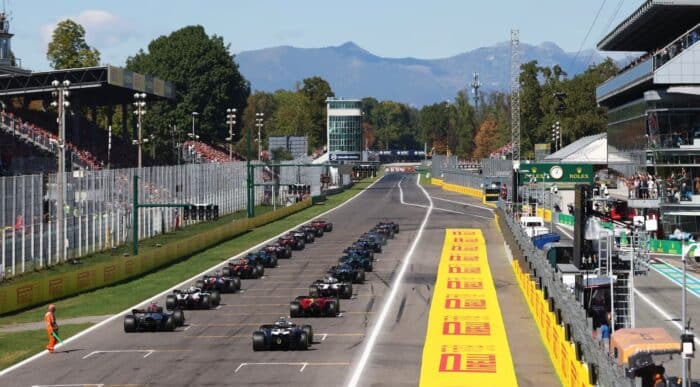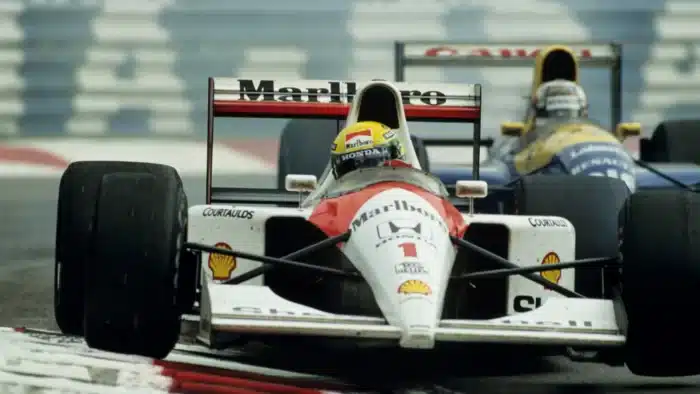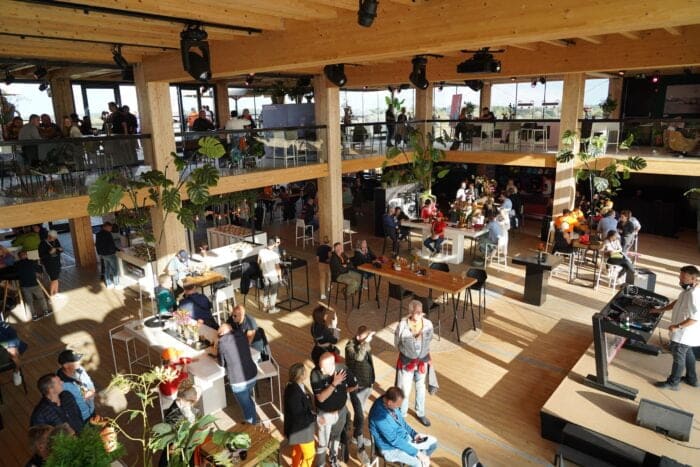The F1 Grand Prix
Formula 1 Grand Prix, often referred to as F1, is the pinnacle of motorsport and a global phenomenon that captivates millions of fans around the world. This high-speed, high-tech racing series combines cutting-edge technology, incredible skill, and rich history to create a spectacle that is truly unparalleled in the world of sports. In this article, we will explore the typical format of an F1 season, delve into some fascinating facts about its history, and discuss how it relates to sports tourism.
Facts about the F1 Grand Prix season
A Formula 1 season is a meticulously structured series of races, each known as a Grand Prix, that takes place across various countries and continents. The typical format of an F1 season includes the following key elements:
The F1 calendar consists of around 20 to 23 races held in different countries. These races are spread across several continents, including Europe, Asia, the Americas, the Middle East, and Australia. Iconic circuits like Monza in Italy, Silverstone in the UK, Monaco’s famous street circuit, and the Yas Marina Circuit in Abu Dhabi are just a few examples of the diverse venues used in the championship.

The Autodromo Nazionale Monza in Italy, known as the “Temple of Speed,” holds a historic place in F1
Each race weekend spans from Friday to Sunday. On Friday, teams and drivers participate in practice sessions to fine-tune their cars. Saturday sees the all-important qualifying session, where drivers compete to secure their starting positions on the grid for the Sunday race.
The main event, the Grand Prix, takes place on Sunday. The race usually lasts around two hours, with drivers racing wheel-to-wheel at speeds exceeding 200 miles per hour. Points are awarded based on finishing positions, with the driver finishing first receiving 25 points.
F1 has two championships, the Constructors’ Championship and the Drivers’ Championship. The Constructors’ Championship is won by the team that accumulates the most points over the season, while the Drivers’ Championship is awarded to the driver with the highest individual point total.
The F1 Calendar
The Formula 1 calendar is a carefully planned and structured schedule of races that make up an F1 season. Each race, known as a Grand Prix, takes place in a different location, often in different countries and on various types of circuits, ranging from traditional racetracks to street circuits. Learn more about the different F1 race circuits below.
About F1’s History
The first Formula 1 World Championship season took place in 1950. Giuseppe Farina won the championship driving for Alfa Romeo, and the sport has evolved significantly since then. Over the years, F1 has seen legendary drivers like Juan Manuel Fangio, Ayrton Senna, Michael Schumacher, and Lewis Hamilton, who have left an indelible mark on the sport’s history.

Racing Legend Ayrton Senna
Formula 1 has been a hotbed of technological innovation. The sport has introduced advancements such as carbon fiber chassis, hybrid power units, and aerodynamic breakthroughs that have often found their way into the wider automotive industry. With races in different countries, F1 has a massive global following. The sport’s popularity has spurred the growth of F1 tourism, attracting fans from all over the world to attend races and explore host cities.
The F1 Grand Prix and Sports Travel
Formula 1 plays a crucial role in the world of sports tourism. F1 races serve as destination events, drawing fans and tourists to host cities. Spectators travel from across the globe to witness the excitement of a Grand Prix firsthand, contributing significantly to the local economy.

The influx of visitors during an F1 weekend boosts the hospitality, restaurant, and tourism sectors. Hotels, restaurants, and local businesses often see a surge in revenue during race weekends. F1 races offer an opportunity for host cities to showcase their culture and attractions. Many cities host pre-race events, concerts, and cultural festivals, allowing tourists to experience the local flavor. In addition, the worldwide television audience for Formula 1 is enormous. This exposure not only promotes the host city but also the entire country, attracting future tourists and investment.
Formula 1 is much more than a motorsport; it’s a global phenomenon that combines thrilling racing, technological innovation, and rich history. Its format, with races held across the globe, has made it a significant player in the world of sports and tourism alike.
The best F1 experience
F1 Experiences is the official experience, hospitality, and travel program of Formula 1’s worldwide races. They offer a wide range of ticket and travel packages for F1 enthusiasts to get closer to the action than ever before. With F1 Experiences, you can choose from a weekend grandstand seat or premium hospitality in the Champions Club or Formula 1 Paddock Club, plus unique benefits only available with F1 Experiences.

Netherlands 2023 Champions Club
F1 Experiences provides unprecedented access to pit lane walks, driving tours of the track, behind-the-scenes tours of the exclusive F1 Paddock and team garages, and priority access to the post-race podium ceremony. They also offer a calendar of events that allows you to choose your race and see all available package options.
Learn more about F1 Experiences by going to their official website.




